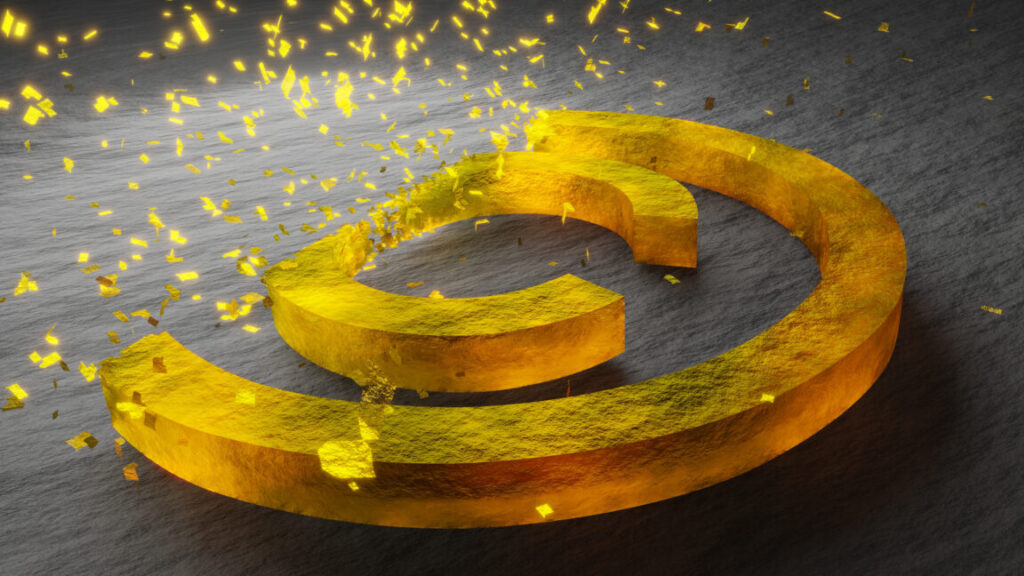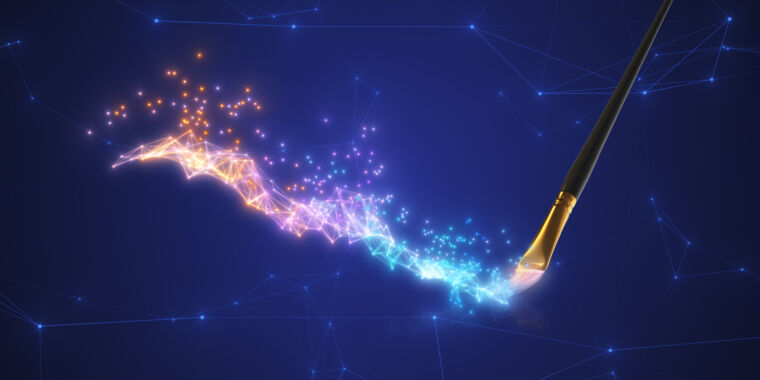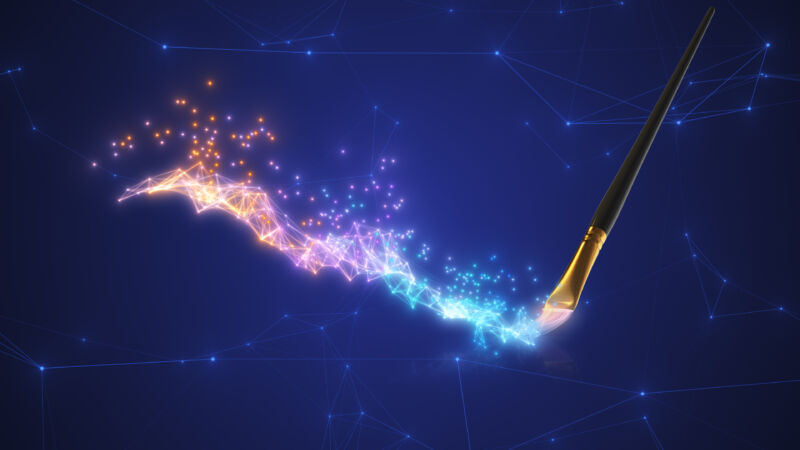In a wild time for copyright law, the US Copyright Office has no leader
Rudderless Copyright Office has taken on new prominence during the AI boom.
It’s a tumultuous time for copyright in the United States, with dozens of potentially economy-shaking AI copyright lawsuits winding through the courts. It’s also the most turbulent moment in the US Copyright Office’s history. Described as “sleepy” in the past, the Copyright Office has taken on new prominence during the AI boom, issuing key rulings about AI and copyright. It also hasn’t had a leader in more than a month.
In May, Copyright Register Shira Perlmutter was abruptly fired by email by the White House’s deputy director of personnel. Perlmutter is now suing the Trump administration, alleging that her firing was invalid; the government maintains that the executive branch has the authority to dismiss her. As the legality of the ouster is debated, the reality within the office is this: There’s effectively nobody in charge. And without a leader actually showing up at work, the Copyright Office is not totally business-as-usual; in fact, there’s debate over whether the copyright certificates it’s issuing could be challenged.
The firing followed a pattern. The USCO is part of the Library of Congress; Perlmutter had been appointed to her role by Librarian of Congress Carla Hayden. A few days before Perlmutter’s dismissal, Hayden, who had been in her role since 2016, was also fired by the White House via email. The White House appointed Deputy Attorney General Todd Blanche, who had previously served as President Trump’s defense attorney, as the new acting Librarian of Congress.
Two days after Pelmutter’s firing, Justice Department official Paul Perkins showed up at the Copyright Office, along with his colleague Brian Nieves. According to an affidavit from Perlmutter, they were carrying “printed versions of emails” from Blanche indicating that they had been appointed to new roles within the Copyright Office. Perkins, the email said, was designated as Acting Register of Copyrights. In other words, he was Perlmutter’s replacement.
But was Blanche actually the acting Librarian, and thus able to appoint Perkins as such? Within the Library of Congress, someone else had already assumed the role—Robert Newlen, Hayden’s former second-in-command, who has worked at the LOC since the 1970s. Following Hayden’s ouster, Newlen emailed LOC staff asserting that he was the acting Librarian—never mentioning Blanche—and noting that “Congress is engaged with the White House” on how to proceed.
In her lawsuit, Perlmutter argues that only the Librarian of Congress can fire and appoint a new Register. In a filing on Tuesday, defendants argued that the president does indeed have the authority to fire and appoint the Librarian of Congress and that his appointees then have the ability to choose a new Copyright Register.
Neither the Department of Justice nor the White House responded to requests for comment on this issue; the Library of Congress declined to comment.
Perkins and Nieves did not enter the USCO office or assume the roles they purported to fill the day they showed up. And since they left, sources within the Library of Congress tell WIRED, they have never returned, nor have they assumed any of the duties associated with the roles. These sources say that Congress is in talks with the White House to reach an agreement over these personnel disputes.
A congressional aide familiar with the situation told WIRED that Blanche, Perkins, and Nieves had not shown up for work “because they don’t have jobs to show up to.” The aide continued: “As we’ve always maintained, the President has no authority to appoint them. Robert Newlen has always been the Acting Librarian of Congress.”
If talks are happening, they remain out of public view. But Perlmutter does have some members of Congress openly on her side. “The president has no authority to remove the Register of Copyrights. That power lies solely with the Librarian of Congress. I’m relieved that the situation at the Library and Copyright Office has stabilized following the administration’s unconstitutional attempt to seize control for the executive branch. I look forward to quickly resolving this matter in a bipartisan way,” Senator Alex Padilla tells WIRED in a statement.
In the meantime, the Copyright Office is in the odd position of attempting to carry on as though it wasn’t missing its head. Immediately after Perlmutter’s dismissal, the Copyright Office paused issuing registration certificates “out of an abundance of caution,” according to USCO spokesperson Lisa Berardi Marflak, who says the pause impacted around 20,000 registrations. It resumed activities on May 29 but is now sending out registration certificates with a blank spot where Perlmutter’s signature would ordinarily be.
This unusual change has prompted discussion amongst copyright experts as to whether the registrations are now more vulnerable to legal challenges. The Copyright Office maintains that they are valid: “There is no requirement that the Register’s signature must appear on registration certificates,” says Berardi Marflak.
In a motion related to Perlmutter’s lawsuit, though, she alleges that sending out the registrations without a signature opens them up to “challenges in litigation,” something outside copyright experts have also pointed out. “It’s true the law doesn’t explicitly require a signature,” IP lawyer Rachael Dickson says. “However, the law really explicitly says that it’s the Register of Copyright determining whether the material submitted for the application is copyrightable subject matter.”
Without anyone acting as Register, Dickson thinks it would be reasonable to argue that the statutory requirements are not being met. “If you take them completely out of the equation, you have a really big problem,” she says. “Litigators who are trying to challenge a copyright registration’s validity will jump on this.”
Perlmutter’s lawyers have argued that leaving the Copyright Office without an active boss will cause dysfunction beyond the registration certificate issue, as the Register performs a variety of tasks, from advising Congress on copyright to recertifying organizations like the Mechanical Licensing Collective, the nonprofit in charge of administering royalties for streaming and download music in the United States. Since the MLC’s certification is up right now, Perlmutter would ordinarily be moving forward with recertifying the organization; as her lawsuit notes, right now, the recertification process is not moving forward.
The MLC may not be as impacted by Perlmutter’s absence as the complaint suggests. A source close to the MLC told WIRED that the organization does indeed need to be recertified but that the law doesn’t require the recertification process to be completed within a specific time frame, so it will be able to continue operating as usual.
Still, there are other ways that the lack of a boss is a clear liability. The Copyright Claims Board, a three-person tribunal that resolves some copyright disputes, needs to replace one of its members this year, as a current board member, who did not reply to a request for comment, is leaving. The job posting is already live and says applications are being reviewed, but as the position is supposed to be appointed by the Librarian of Congress with the guidance of the Copyright Register, it’s unclear how exactly it will be filled. A source familiar at the Library of Congress tells WIRED that Newlen could make the appointment if necessary, but they “expect there to be some kind of greater resolution by then.”
As they wait for the resolution, it remains an especially inopportune time for a headless Copyright Office. Perlmutter was fired just days after the office released a hotly contested report on generative AI training and fair use. That report has already been heavily cited in a new class action lawsuit against AI tools Suno and Udio, even though it was technically a “prepublication” version and not finalized. But everyone looking to see what a final report will say—or what guidance the office will issue next—can only keep waiting.
This story originally appeared on wired.com.
In a wild time for copyright law, the US Copyright Office has no leader Read More »



